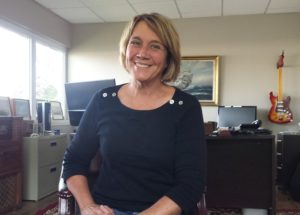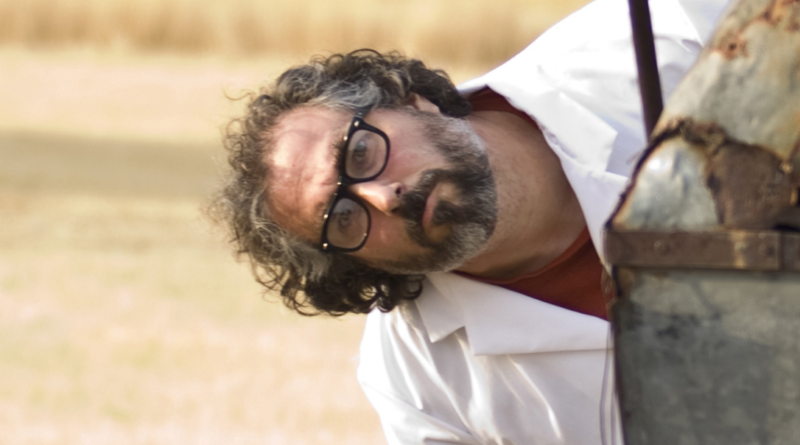Extreme Permaculture Primer
Podcast: Play in new window | Download (Duration: 1:32:39 — 42.1MB)
Subscribe: Apple Podcasts | Spotify | Android | iHeartRadio | Podchaser | Email | TuneIn | RSS | More
(July 12, 2020) A lot of us do our very best to make the natural world around us a little bit better. We grow some of our own food. We reuse, reduce and recycle. We try to keep energy costs down. (At least, I hope we do.) We compost (more on that in a little bit.) We swap out our incandescent light bulbs for compact fluorescents and LEDs (more on that in a little bit.) But we’re pikers when compared to a guy named Paul Wheaton. He has co-authored what could be described as an essential extreme permaculture primer.
Skip to a specific segment in this podcast
3:41 Horticulturist Melinda Myers
47:16 Permaculturist Paul Wheaton
1:25:19 Meteorologist Rick DiMaio
You should know that Paul Wheaton doesn’t sit around watching the grass grow. In fact, he’s not much of a fan of turf, which is a good thing. He has been exploring permaculture techniques since about 1999. He runs the websites permies.com, coderanch.com, richsoil.com, and Wheaton Labs. He has posted close to 500 podcasts and about 26,000 forum posts at Permies.com. He has shot untold numbers of videos. He made a 3-DVD set about just the earthworks for permaculture gardening. And he made a 4-DVD set about rocket mass heaters. Then he made another 4-DVD set about rocket mass heaters. He even made permaculture playing cards. I have no idea whether that’s a big seller.
There are Ted talks and more. And that’s just scratching the surface. Oh, and he was dubbed the Duke of Permaculture by Geoff Lawton.
Now, he’s written a book with Shawn Klassen-Koop called Building a Better World in Your Backyard Instead of Being Angry at Bad Guys. I can honestly say that it covers just about everything you can imagine in the permaculture world. I can also honestly say that I don’t agree with everything they write. However, I’m just a radio host, not a permaculture expert. And, after all, isn’t that why we do interviews?
Let me give you a sense of the scope of the 340 page (including appendices and thank-yous) book. These are some of the subjects he and Shawn cover.
- The Wheaton Eco-Poser Test – You need to get your heat and electricity bill to under $1000/year.
- The Wicked Lies About Light Bulbs – He thinks we went astray when stopped using incandescents.
- Reducing your carbon footprint, your petroleum footprint and your toxic footprint – Use an outdoor clothesline, grow your own food, and pay attention to the stuff you eat, drink and use to keep clean.
- Organic v. Local Food – Make it local AND organic
- Moving Way Beyond Recycling – We’ve talked about this a lot on the show: reduce, reuse and rethink.
- Vegan vs Omnivore vs Junk Food – He’s not a particular fan of veganism, though he shares their values.
- Reducing Home Energy Usage – 63% of home energy Use in a old climate is heat. He’s a huge fan, in case you haven’t figured it out, of rocket mass heaters.
- More People Living Under One Roof Without Stabbing Each Other – Sounds mighty like a commune to me. Some people will go for that, but we have so much “individualism” in America right now that we can’t even get folks to wear masks to slow the spread of an often fatal disease. Good luck with that one, Paul.
- Growing Your Own Food – I’m with you there, pal! Hugelkultur, no tilling, perennial edibles (like trees), replacing fertilizer with polyculture and more are key components.
- Greywater recycling – Not always easy in a city or suburb.
- The Conventional Lawn vs a Mowable Meadow – Anybody who has ever listened to this show knows that I’m on board with that.
I have more than a few disagreements about what Wheaton and Klassen-Koop propose. For one thing, he goes off on a rant about native plant enthusiasts.
Over the last few decades, I have met a lot of very lovely people who are freaky enthusiastic about native plants.1 As much as they seem to powerfully advocate a positive thing, I must confess that I have now been down this road so many times that, when I encounter somebody advocating native plants, my stomach twists into a knot. I often choose to change the subject in an effort to keep the conversation friendly.
When I first heard of arguments about native plants, I could not comprehend how there could possibly be anything to argue over. If there are such strong advocates for native plants, it seems that there must be another group that is against native plants. How can anybody advocate against native plants? It turns out that nobody is doing that. It’s just that the “pro native plant” campaigns wish to kill the competition. Not just on their property, but on all property.
You need to understand that Wheaton lives in Montana. I want to ask him, “Have you ever been to a Chicago suburb? Or any suburb?” Those are the people who are against native plants. I would also argue that there are enemies of native plants in the form on something called the horticultural industry, which is more interested in the newest, greatest and most exotic at the expense of plants that have grown on our lands for thousands of years. I also want (and I plan to) ask him if he has read Doug Tallamy’s Bringing Nature Home.
He’s also not a fan of composting. Yeah, really.
Composting is easy. Put a bunch of organic matter into a pile. Composting happens. The result is a bunch of organic matter that is as little as 10% the size of the original pile.3 Where did the other 90% go? Well, there was some water, but most of it went up as nitrogen or carbon into the atmosphere. Wait! Aren’t nitrogen and carbon the very things that we are desperately trying to get into our soil?
True. But most of the people I know put their organic matter into their garbage, which ends up in landfill. And when that organic finds its way into the atmosphere, it’s in the form of methane, which is somewhere in the vicinity of 20+ times more potent as a greenhouse gas than CO2. This is reality in 21st century America.
To be fair, he goes into other things you can do with your organic waste. So I guess you need to read the book.
By the way, If you want a FREE copy of the book, you have exactly 28 hours to go to this page and download it. Yeah, you’ll have to sign up for his newsletter, but life is always about compromise. Ready, set, GO! Wheaton is guaranteeing that 200 of my listeners can get their hands…er, computers, on a pdf file.
We welcome Paul Wheaton to the second hour of today’s show.
The wonderful Melinda Myers
Before we get into the world of extreme permaculture, we start with the somewhat less radical Melinda Myers. She last joined us on March 29 of this year, when we were all freaking out about COVID-19. I had just spent my first 17 days locked away in my own home.
 Four months later, we’re still pretty much freaking out. Except that we’ve chosen how, individually, we deal with the pandemic. Me? You pretty much cannot get me into a public place. I have spend most of the time since March in my own garden, which is a good thing. It has never–and I mean never–looked better. And now that we’re into the heat of summer, it’s good to get advice from a pro like Melinda.
Four months later, we’re still pretty much freaking out. Except that we’ve chosen how, individually, we deal with the pandemic. Me? You pretty much cannot get me into a public place. I have spend most of the time since March in my own garden, which is a good thing. It has never–and I mean never–looked better. And now that we’re into the heat of summer, it’s good to get advice from a pro like Melinda.
Here’s what you need to know about her.
Nationally known gardening expert, TV/radio host, author & columnist Melinda Myers has over 30 years of horticulture experience and has written over 20 gardening books, including Can’t Miss Small Space Gardening, the Midwest Gardener’s Handbook, and Jackson and Perkins’ Beautiful Roses Made Easy. She hosts the nationally-syndicated “Melinda’s Garden Moment” program which airs on over 115 TV and radio stations throughout the U.S. Melinda also hosts the internationally distributed Great Courses “How to Grow Anything” DVD series, including the latest Food Gardening for Everyone DVD set. She is a columnist and contributing editor for Birds & Blooms magazine, regular columnist for The Milwaukee Journal Sentinel and writes a nationally distributed newspaper column.
Today she has some advice about how to be patient with your plants. We’ll also look at the Midwest year to date–lots of rain followed by lots of heat–and see what that means for your backyard plants.


